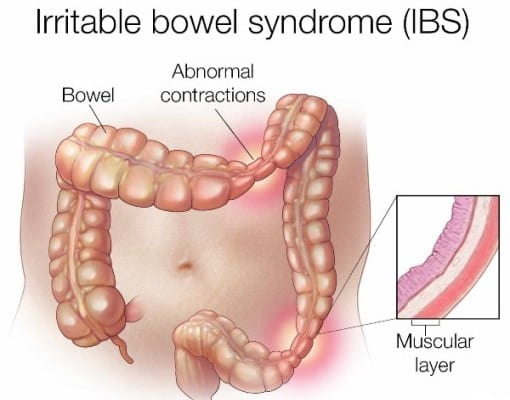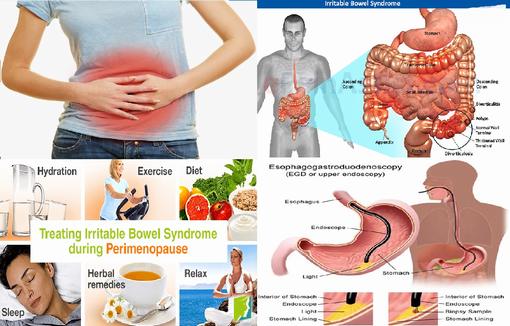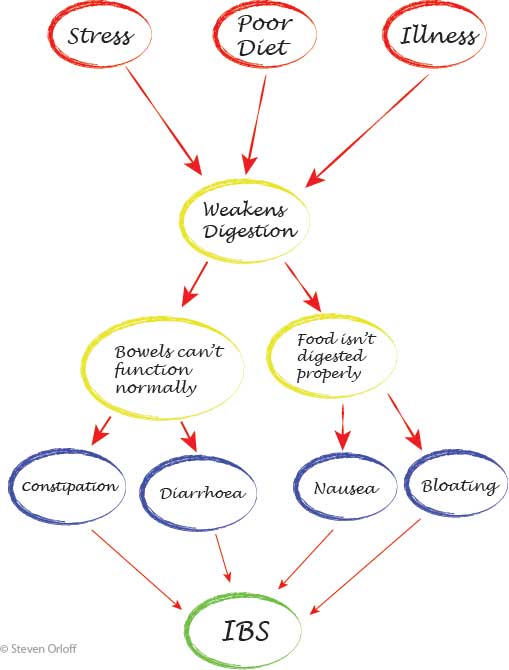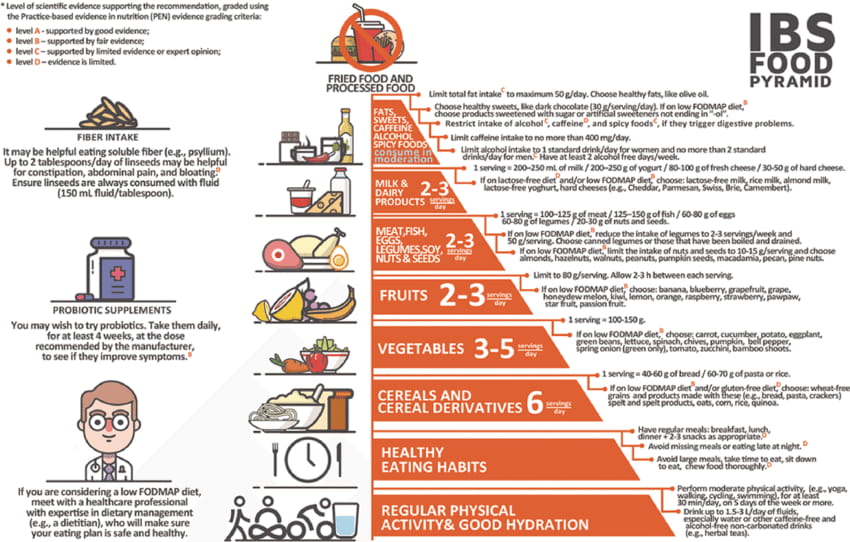What is irritable bowel syndrome (IBS)? Causes, Treatments, Diet is…
Necessary information about irritable bowel syndrome
Stomach aches are more popular with a lot of other symptoms, therefore, the post will provide essential and useful information about one of the symptoms of the disease is irritable bowel syndrome.
- What is irritable bowel syndrome?
Irritable bowel syndrome is one of the common digestive diseases. Common manifestations of the disease include stomach cramps, abdominal pain, bloating, acid reflux, diarrhea, and constipation. Typically, one in five people has irritable bowel syndrome with age from 20 to 30 years old. Furthermore, statistics also show that the number of cases of bowel syndrome in women is nearly double that of men.
Besides, although irritable bowel syndrome does not increase the risk of life-threatening illnesses, it is still a chronic condition requiring long-term control. Besides that, the disease also brings uncomfortable and painful for patients when they eat something or stress. The symptoms of the disease can be resolved after you go to the bathroom. Although irritable bowel syndrome will last for a long time, the condition can be improved if treated and controlled.
- Symptoms of irritable bowel syndrome
One of the most common symptoms of irritable bowel syndrome is abdominal pain and changes in urinary habits. The pain is worse after eating and relieving after you go to the toilet. Moreover, symptoms of irritable bowel syndrome may change over time and depend on the age of patients. Sometimes the symptoms may recur after a time of disappearance.
Some common symptoms of irritable bowel syndrome include
– Pain and stomach cramps;
– Changing your bowel habits, you may have diarrhea, constipation or sometimes both of them
– Distention
– Flatulence
– Feeling the urge to urinate
– Feeling of bowel movement is not complete
– Feces are mucus
Although sometimes the signs and symptoms of the disease may worsen, improve or even disappear entirely, few cases can cure the disease, so irritable bowel syndrome remains a chronic disease with most people.
- Causes of irritable bowel syndrome
Doctors do not yet know exactly what causes irritable bowel syndrome, but there are opinions that the syndrome is linked to increased intestinal sensitivity and problems with digestion. Another side, some medical experts believe that the brain also has a role in controlling the defecation process of the body. Thus, irritable bowel syndrome is often thought to be a disease associated with the cerebral cortex. It means that you will be more sensitive to intestinal pain, and the brain will respond to this feeling by transmitting the cues to remind you to go to the toilet. You may have constipation or diarrhea because the food passes through the intestines too quickly or too slowly. Besides, that psychological factors such as stress can also cause irritable bowel syndrome.
- Treatment for irritable bowel syndrome
Although there are no definitive cures for this syndrome, you can control them with changes in diet and lifestyle such as
– Identifying and avoiding foods and drinks can trigger the onset of symptoms
– Change the amount of fiber in the meal
– Exercise regularly
– Reduce stress
Besides that doctors sometimes give you some medications to treat the individual symptoms of irritable bowel syndrome. If lifestyle changes do not help to improve symptoms, then you should use some medicine. However, patients with moderate to severely irritable bowel syndrome need only occasional medication.
Some of the medicines that your doctor may prescribe for you include
– Medications for cramping such as dicyclomine (Bentyl) or hyoscyamine (Levsin);
– Diarrhea medicines such as drugs containing loperamide (Imodium) or diphenoxylate (Lomotil);
– Laxatives
– Tranquilizers
There are only a small group of patients with irritable bowel syndrome showing signs and symptoms. Some patients can control their symptoms by maintaining a healthy diet, lifestyle, and stress reduction. In more severe cases, it is necessary to take medicine and see a doctor.
- Diet is appropriate when you have irritable bowel syndrome
It is not possible to predict intestinal irritation because you may not feel any the symptoms. The key to relieving symptoms is that you have to understand the connection between the disease and stress as well as physical factors. Therefore, the best cure is to change the lifestyle.
You should limit or avoid foods that cause onset or aggravate symptoms. Also, you should break down your meals and eat less if you feel uncomfortable or painful after eating. Patients with irritable bowel syndrome are often advised to adjust their dietary fiber intake. Fiber can help reduce constipation and diarrhea. There are many fiber-rich foods that you can find such as
– Oat
– Fruits such as bananas or apples
– Bulbs such as carrots or potatoes
– Whole wheat bread
– Cereals
– Nuts (except flaxseeds)
In addition to changing your diet, you may need to change your eating habits. Symptoms can be improved if you follow some suggestions below
– Eat regularly and chew when eating
– Do not skip meals or keep the time distance between meals too long
– Drink at least eight glasses of water a day, especially water and non-coffee drinks such as herbal teas
– Do not drink more than three cups of coffee and tea in one day
– Limit the amount of alcohol and carbonated beverages
– Limit the use of indigestible starches (non-decomposed starch in intestines and intestines in the large intestine) commonly found in processed foods or cooked
– Stay away from sorbitol if you have diarrhea. This is an artificial sweetener found in sugar-free sweets such as chewing gum, beverages and products for diabetics and weight loss.
– If you have flatulence and bloating, you can take oatmeal foods such as breakfast cereal or oatmeal
Irritable bowel syndrome can cause pain and discomfort to the person. Therefore, patients with this syndrome will often suffer from depression and anxiety. Irritable bowel syndrome is not a severe disease which can threaten to your health. It also does not increase the risk of cancer or other intestinal problems. You can still have a normal life, fullness, and health when receiving appropriate therapy. Therefore, you should see a doctor if you get some syndromes above. Hope that the post will bring useful and necessary information about irritable bowel syndrome for you.
See more:
1- What is lactose intolerance? symptoms, cause, treatment, how to prevent
2- What is Gout? causes, symptoms, diagnosing, treatment, how to prevent Gout
3- What is a sinus infection? symptoms, cause, treat, prevent the sinus infection
4- What is chronic fatigue syndrome? Symptoms, causes, risks, treatment, prevent
5- What is strep throat? symptoms, causes, treatments, diagnose, prevent
6- What is strep throat? symptoms, causes, treatments, diagnose, prevent
7- What is pelvic inflammatory disease (PID)? Causes – Signs – How to treat – How to prevent
8- What is polycystic ovary syndrome (PCOS)? Signs – The main cause – Treat
9- What is diabetes? Types – Symptoms – Complications of diabetes




